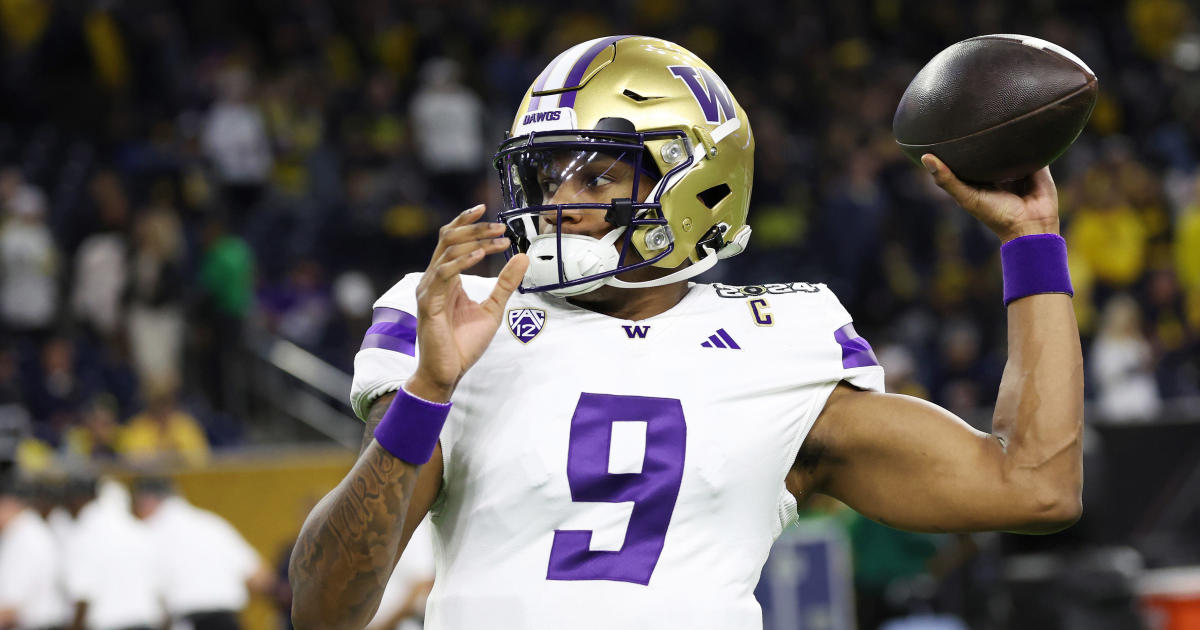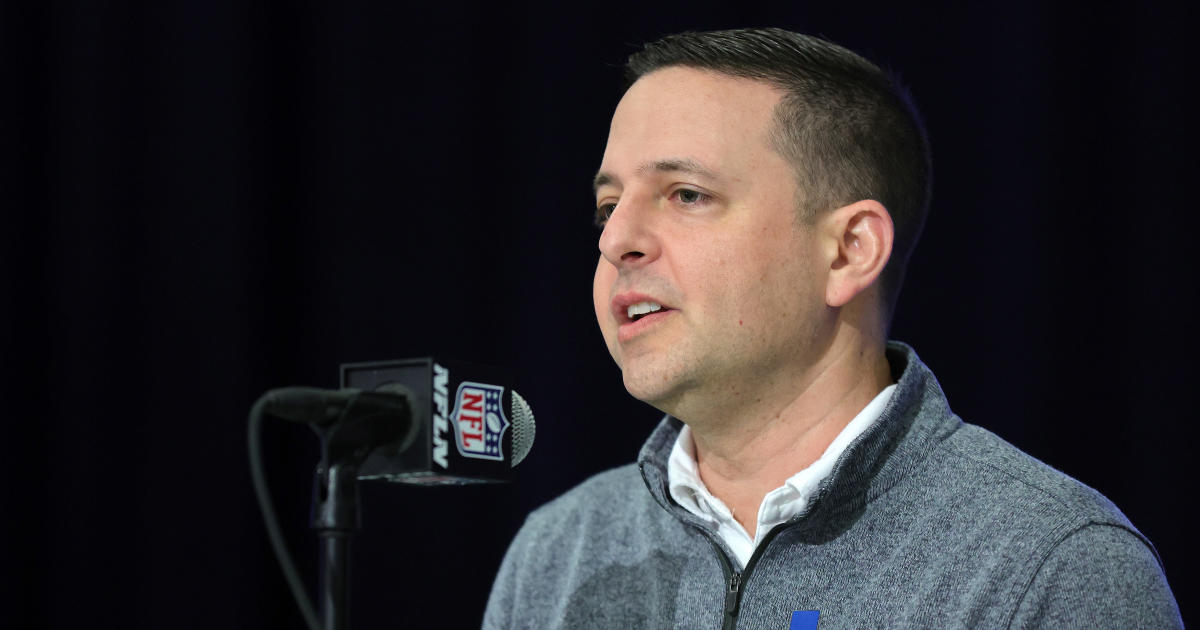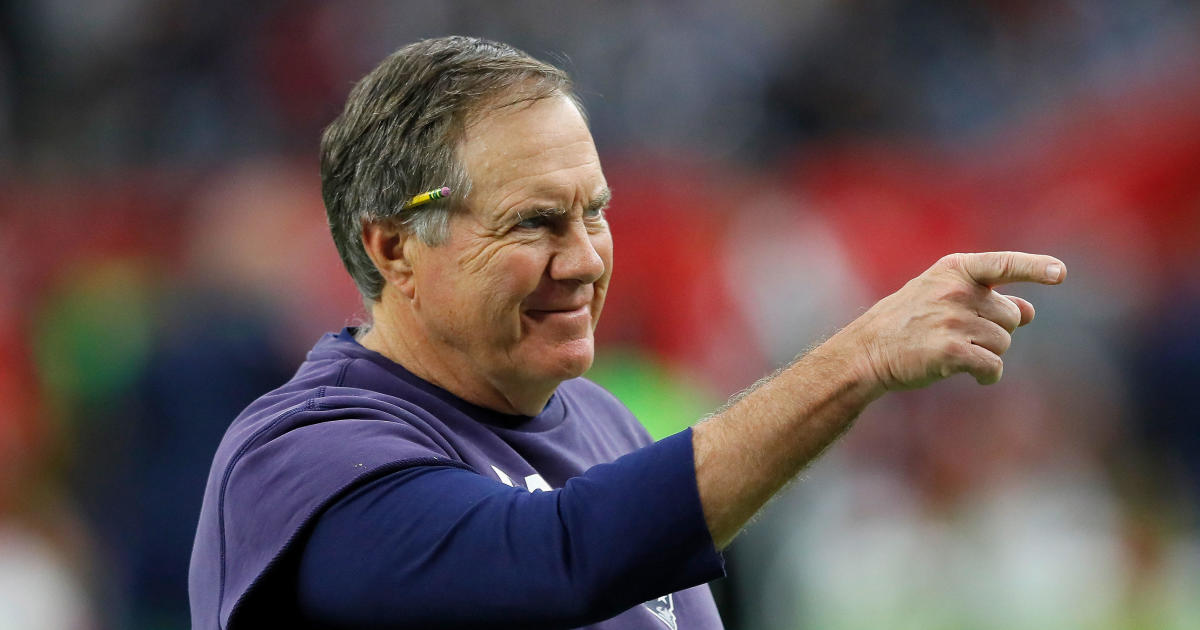Hurley: Ted Wells Claims Impartiality, Despite Multi-Million Dollar Payday From NFL
BOSTON (CBS) -- Ted Wells, the man hired by the NFL to investigate allegations of the Patriots' imperiously deflating footballs prior to the AFC Championship Game, spoke with the media on Tuesday afternoon in an effort to clear up a number of misconceptions and issues he had with both the media coverage of his report and the reaction from the Patriots and Tom Brady's agent, Don Yee.
On this quest, he was successful in some areas and he missed the mark on some others.
Here's an examination of both the hits and the misses. In the interest of fairness, the successful explanations will go first.
What Looks Good For Ted Wells And The NFL
1. Wells' Explanation About The Patriots' Refusal To Make Jim McNally Available
The Wells report noted that Ted Wells' team asked the Patriots for the opportunity to interview Jim McNally for a second time but was refused by the Patriots. After the report was released, Robert Kraft clarified that at that point, McNally had been interviewed four times already, so he denied the opportunity on the basis that five interviews was too many.
The problem for Kraft, if Wells is to be believed, is that even the Patriots owner felt as though the first three interviews should not be counted.
"Before I was appointed, NFL security people talked to McNally on three occasions," Wells explained. "They talked to him on the night of the game for approximately 40 minutes. They talked to him the next morning by telephone for about 20 minutes. They talked to him in person I believe the next day for about 30 minutes. Those are the three interviews.
"The Patriots urged me when I got into the case to start fresh, not to pay any attention to what NFL security had done. In fact, they thought the people at NFL security were biased. They applauded when I said I'm starting fresh. And for them later on to say I could not have a second interview of the most important person in the case was just ... a lack of cooperation."
(Worth noting: curiously, another voice came in and told Wells to say "a lack of cooperation" at the end of that statement.)
Also, from Wells: "And I had also discovered after the first interview one of the most important text messages where Jim McNally not only calls himself 'The Deflator' but says he has not 'gone to ESPN … yet.' Which is akin, as far as I am concerned, as saying 'I have not gone to the media yet to report what I'm doing.' And I had not found that text during the time of the first interview. I wanted to confront him with that. I asked for a second interview, I said I would go to New Hampshire, I would interview him in the morning, afternoon, night -- I didn't care. I would make myself available whenever he was free. And not only did they say I couldn't interview him, [but] they said they wouldn't even tell him about my request for an interview."
2. Exponent Explains Away The Theory That The Logo Vs. Non-Logo Gauge Is Essential
Now, this one comes only if you trust what Exponent concluded, and there is certainly reason to doubt that company's integrity. But Lorin Reisner, whose name was on the front page of the report, explained that Exponent accounted for all possible scenarios regarding gauges. Though his explanation came across as more of a filibuster than anything else (he spoke for three minutes uninterrupted), he spoke definitively with regard to the results.
"[Exponent's] statistical model accounted for the possibility of either gauge being used prior to the game, and that's in their report," Reisnder said. "And we set forth in our report at page 10 that according to Exponent, regardless -- regardless -- of the assumptions made with respect to the gauges used pregame and at halftime, the measurements recorded for the Patriots' game balls at halftime cannot be entirely explained by the Ideal Gas Law when applied to the most likely game conditions and circumstances."
Now, I've seen many explanations of the physics that could have been at play. But I am not a physics expert, so absent any expertise, I have to trust that those tests are at least plausibly accurate.
3. 'The Deflator' Text From McNally Does Serve As Unexplainable Evidence For The Patriots
There may have been an explanation for McNally to refer to himself as "The Deflator" in a text message to John Jastremski dated May 2014. Perhaps it was an inside joke that did not relate to deflating footballs. But nobody from the Patriots gave Wells a satisfactory answer that would have cleared them in that regard.
"What drove the decision in this report was one thing: it was the evidence," Wells said at the end of his call. "And I could not ethically ignore the import and relevancy of those text messages and the other evidence. I mean, the notion that McNally is referring to himself as 'The Deflator' before the season starts and threatening that he had not gone to ESPN yet, no one can ignore the implications of that text message, and no one can see it as a joke, and nor is it circumstantial evidence. It is direct evidence, and it is inculpatory."
On that last point, Wells is a bit off. The definition of circumstantial evidence is "a series of facts other than the particular fact sought to be proved. ... This series of facts, by reason and experience, is so closely associated with the fact to be proved that the fact to be proved may be inferred simply from the existence of the circumstantial evidence."
Direct evidence in this case would have been McNally saying, "I deflated footballs on Sunday for Brady" or video evidence of him doing it.
Regardless, the texts do provide evidence that something took place, and McNally was at the center of it.
"That is two of the participants in the scheme discussing what is taking place and in that particular text, Jastremski says that Tom Brady brought up McNally and said 'you must have a lot of stress,'" Wells said. "And I interpret that, and I believe that to the bottom of my heart, that that refers to the fact that there must be stress in getting the balls done."
What Looks Bad For Ted Wells And The NFL
1. Conflict Of Interest Suspicions Should Still Rightfully Persist
Wells was asked point-blank if he charges billable hours, to which he replied yes. Wells was then asked how much money the NFL paid him to run this investigation.
"I don't know off the top of my head, but there's no question it's in the millions of dollars," Wells said.
When asked if he could be more specific, Wells remained silent. At that point, the moderator came on the line and said, "Not necessary. Next question, Mike."
For a guy who desperately wanted to read Tom Brady's personal emails and text messages, that's not the best show of cooperation to an inquisitive mind.
But moreover, a person being paid multiple million dollars by an organization is going to feel beholden to that particular organization. It is human nature -- and based on Wells' edgy demeanor throughout the entire call, he's very clearly a man who rides some swings of emotion.
Wells was asked if he took charges of a lack of independence personally.
"Well, look. I'm. Whether I'm -- yeah. I'm. Look. The term 'personally insulted' … look. The bottom line, Mr. Yee is Mr. Brady's agent and he's trying to do, I assume, his job," Wells answered. "Let's put it like this: I totally reject any suggestion that I was not independent or that the report in some way was slanted to reach a particular result. So I reject all of that."
He may reject it, but logic dictates that when an organization pays him millions of dollars to investigate a football team, he's not there to serve as a mediator. He's there to get results.
2. Wells' Best Evidence Still Does Not Find Brady Guilty Of Cheating
The aforementioned "Deflator" text messages from McNally, as well as Jastremski saying Brady was concerned about McNally's stress in "getting them done," served as the key evidence for Wells. He refused to call that circumstantial evidence.
While that minute point could be argued back and forth, Wells still could not use that evidence to find actual evidence that Brady wanted footballs to be inflated below the league-mandated 12.5 PSI.
Read this quote again: "I view that statement as Jastremski saying that Tom Brady brought up McNally and said that McNally must have a lot of stress trying to get them done, and Jastremski replies 'I told him it was.' So that is not circumstantial evidence. That is two of the participants in the scheme discussing what is taking place and in that particular text, Jastremski says that Tom Brady brought up McNally and said 'you must have a lot of stress.' And I interpret that, and I believe that to the bottom of my heart, that that refers to the fact that there must be stress in getting the balls done."
Yes, indeed. But nowhere does it indicate that Brady told McNally to deflate footballs after the officials checked the balls, and nowhere does it say that Brady wanted the footballs below the allowable level. Ergo, the best evidence Wells has is still not enough to bury Brady.
3. Nobody In The NFL Took The Colts' Accusations Seriously In The Week Leading Up To The Game
The Wells report explains the chain of events that led to the pregame awareness of potentially illegal behavior with regard to how the Patriots prepared their game balls. Very quickly, that chain looked like this:
a.) Colts GM Ryan Grigson and equipment manager Sean Sullivan emailed David Gardi and Mike Kensil from NFL game operations.
b.) Gardi responded to Grigson, and Kensil forwarded the email to James Daniel, the NFL's director of game operations.
c.) Daniel forwarded that email to game operations personnel who would be in attendance at the game.
d.) Kensil forwarded the email to VP of officiating Dean Blandino and senior director of officiating Alberto Riveron.
e.) Riveron and Blandino raised the issue with Walt Anderson, the referee for the game.
From Page 48 of the Wells report: "Riveron mentioned that concerns had been raised about the game balls, and that Anderson should be sure to follow proper pre-game procedures. Riveron recalls that Anderson responded that he had things covered and may have mentioned that he had already discussed the issue with Blandino."
This is quite the extensive process. Despite all of this being in his own report, Wells claims that nobody took the Colts' complaint about the Patriots seriously.
"I investigated that issue, the Patriots asked me to investigate that issue, and I did not find that there was a sting," Wells said. "What the facts showed was just the opposite. When the Colts made the complaint, no one at the league office took the complaint seriously. They flipped the complaint via email to the operations people so they knew about it, they told the refs. Walt Anderson thought it was just a normal complaint, you get these types of things all the time. Nobody paid that much attention to it."
Later, Wells doubled down on this explanation.
"I did not interview Commissioner Goodell. It was my understanding he was not brought into the loop regarding the complaint," Wells said. "And what the evidence showed -- I talked to Mr. Kensil, Mr. Riveron, I talked to all the people who were in that loop, including the referee Walt Anderson -- and the truth of the matter is, no one took the complaint that seriously. The complaint was not supported by any evidence, and although they passed it on to the referees, the referees did not view it as some red, you know, fire alarm or something. Nobody took it that seriously. And that's why I come [sic] out and say [sic] this was not a sting operation. It was in fact just the opposite."
This comment from the lead investigator should shine rather bright. He's saying in plain words that the NFL really did not care much about the PSI of the footballs for the AFC Championship Game, a game in which the winner goes on to play in the Super Bowl, the league's most significant event.
This lack of attention helps explain how Walt Anderson lost track of the footballs for the first time in his 19-year career, and while it would not absolve the Patriots of any wrongdoing that took place following the inspection, it would explain the league's lax handling of pregame measurements and chain of custody of the footballs.
4. Wells Still Has No Right To Inspect Brady's Private Messages
Ted Wells praised Brady for being "totally cooperative" with the investigation, except for the quarterback's unwillingness to hand over his private emails and text messages to the investigative team. This refusal has led many to assign guilt to Brady, when in fact no employee at any business is obligated to hand over a personal device based only on an accusation -- let alone one about air pressure. (I covered this topic in detail yesterday.)
The fact that Wells, on this very conference call, was unwilling to disclose exactly how much money the NFL paid him for the investigation supports the case that most folks opt for privacy when given the opportunity.
Yet Wells claims that he did not demand Brady hand over his phone entirely. Instead, Wells said that he offered Brady and his agent, Don Yee , the opportunity to hand-pick certain emails and/or text messages that relate to the case.
"And I want to be crystal clear; I told Mr. Brady and his agents, I was willing not to take possession of the phone," Wells explained. "I said I don't want to see any private information. I said, 'YOU keep the phone. You, the agent, Mr. Yee, you keep the phone, you give me documents that are responsive to this investigation and I will take your word that you have given me what's responsive. And they still refused."
This is a most disingenuous claim.
From Page 19 of the Wells report: "During his interview, Brady denied any knowledge of or involvement in any efforts to deflate game balls after the pre-game inspection by the game officials. He claimed that prior to the events surrounding the AFC Championship Game, he did not know McNally's name or anything about McNally‟s game-day responsibilities, including whether McNally had any role relating to game balls or the game officials. We found these claims not plausible and contradicted by other evidence."
The report states clearly: We did not believe what Tom Brady told us. For Wells to say now that Brady's sharing some hand-picked text message would have made a difference is not honest, and it ignores the fact that regardless of guilt or innocence in the matter of air pressure in footballs, Brady has a right to privacy. That should not be held against him.
Read more from Michael Hurley by clicking here. You can email him or find him on Twitter @michaelFhurley.
Listen to the entirety of Ted Wells' conference call below (it begins midway through his opening statement, which you can read here):



